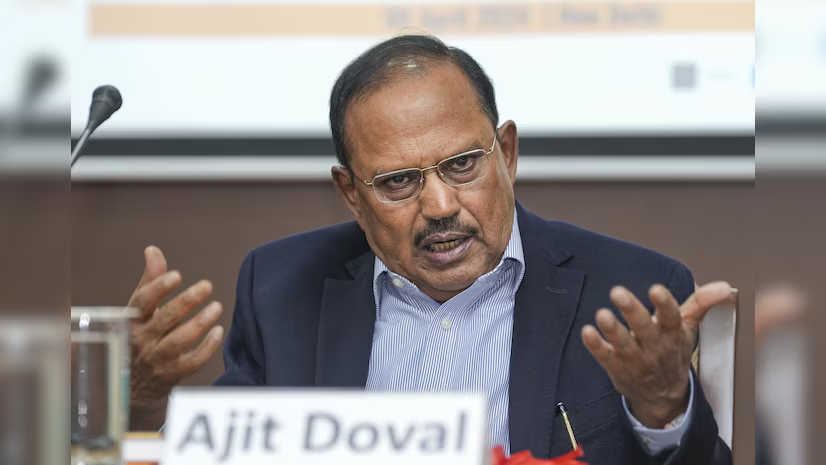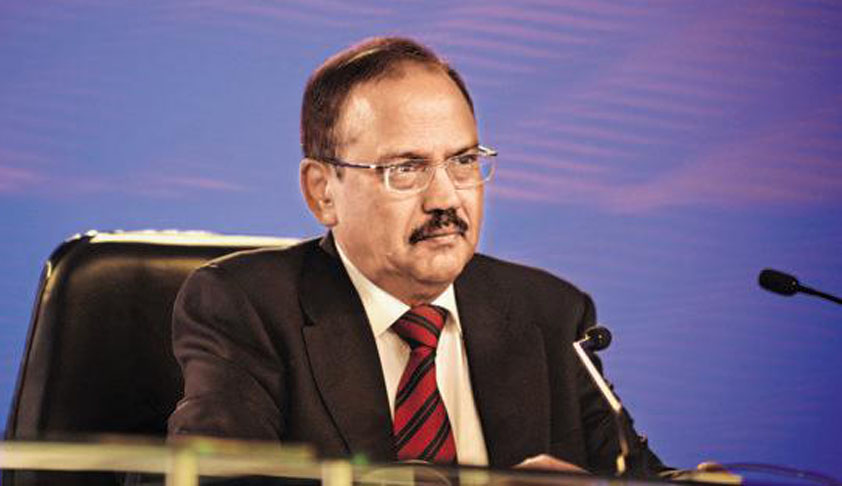Ajit Doval: India’s Master Strategist and National Security Architect
Ajit Kumar Doval, born on January 20, 1945, in Ghiri Banelsyun village of Pauri Garhwal, Uttarakhand, stands as a pivotal figure in India’s national security landscape. With a career spanning over five decades, Doval’s contributions as a spymaster, negotiator, and policy strategist have been instrumental in shaping India’s internal and external security policies.

Early Life and Education
Born into a Garhwali family, Doval’s father, Major G. N. Doval, served in the Indian Army, instilling in him a sense of discipline and patriotism. He completed his schooling at King George’s Royal Indian Military School (now Ajmer Military School) in Rajasthan. In 1967, Doval earned a Master’s degree in Economics from Agra University. His academic pursuits laid a strong foundation for his analytical and strategic thinking skills.
Distinguished Career in Intelligence and Security
Doval joined the Indian Police Service (IPS) in 1968, assigned to the Kerala cadre. His early assignments involved tackling insurgencies in the Northeast and Punjab. Notably, he played a significant role in Operation Black Thunder in 1988, where he infiltrated the Golden Temple disguised as a rickshaw puller to gather intelligence on Khalistani militants. His efforts were crucial in minimizing casualties during the operation.
In the 1990s, Doval’s expertise was pivotal in counter-insurgency operations in Jammu and Kashmir. He successfully persuaded militant leader Kuka Parray to surrender and form a pro-government militia, aiding in restoring democratic processes in the region.
Doval’s tenure as an undercover operative in Pakistan is legendary. Spending seven years in disguise, he gathered critical intelligence on militant groups and the ISI, showcasing his deep understanding of Pakistan’s socio-political fabric.
National Security Advisor: Strategic Leadership
Appointed as India’s fifth National Security Advisor (NSA) on May 30, 2014, Doval brought his vast experience to the forefront of national policymaking. Under his guidance, India adopted a more assertive stance on security matters.
- 2015 Myanmar Operation: Doval orchestrated a cross-border operation targeting Naga insurgents, marking a shift in India’s counter-insurgency strategy.
- 2016 Surgical Strikes: In response to the Uri attack, Doval was instrumental in planning surgical strikes across the Line of Control, signaling India’s proactive defense posture.
- 2019 Balakot Airstrikes: Following the Pulwama attack, Doval oversaw airstrikes targeting terrorist camps in Balakot, Pakistan, reinforcing India’s commitment to combating terrorism.
Doval also played a key role in the abrogation of Article 370 in Jammu and Kashmir, integrating the region more closely with the Indian Union.
Diplomatic Endeavors and Crisis Management
Beyond military operations, Doval has been central to diplomatic initiatives. He facilitated back-channel talks with Pakistan, leading to Prime Minister Modi’s visit to Lahore in 2015.

In 2014, Doval ensured the safe return of 46 Indian nurses trapped in Iraq by negotiating with ISIS-affiliated groups, demonstrating his adept crisis management skills.
Recognitions and Legacy
Doval’s exceptional service has been acknowledged through numerous awards:
- Kirti Chakra: First police officer to receive this military gallantry award.
- President’s Police Medal: For distinguished service.
- Police Medal for Meritorious Service: Awarded early in his career.
His tenure as NSA has been marked by a decisive shift in India’s security paradigm, emphasizing proactive measures and strategic depth. Doval’s contributions continue to shape India’s approach to national and regional security challenges.
Conclusion
Ajit Doval’s journey from a small village in Uttarakhand to the highest echelons of national security symbolizes the power of dedication, intelligence, and strategy. Whether through covert operations or high-level diplomacy, Doval has significantly influenced India’s security apparatus and geopolitical positioning. As challenges to national security grow more complex, his experience and strategic acumen continue to be vital assets for the country. A master of the shadows and a key architect of India’s modern defense policy, Ajit Doval stands as a symbol of resilience, courage, and uncompromising commitment to the nation.
